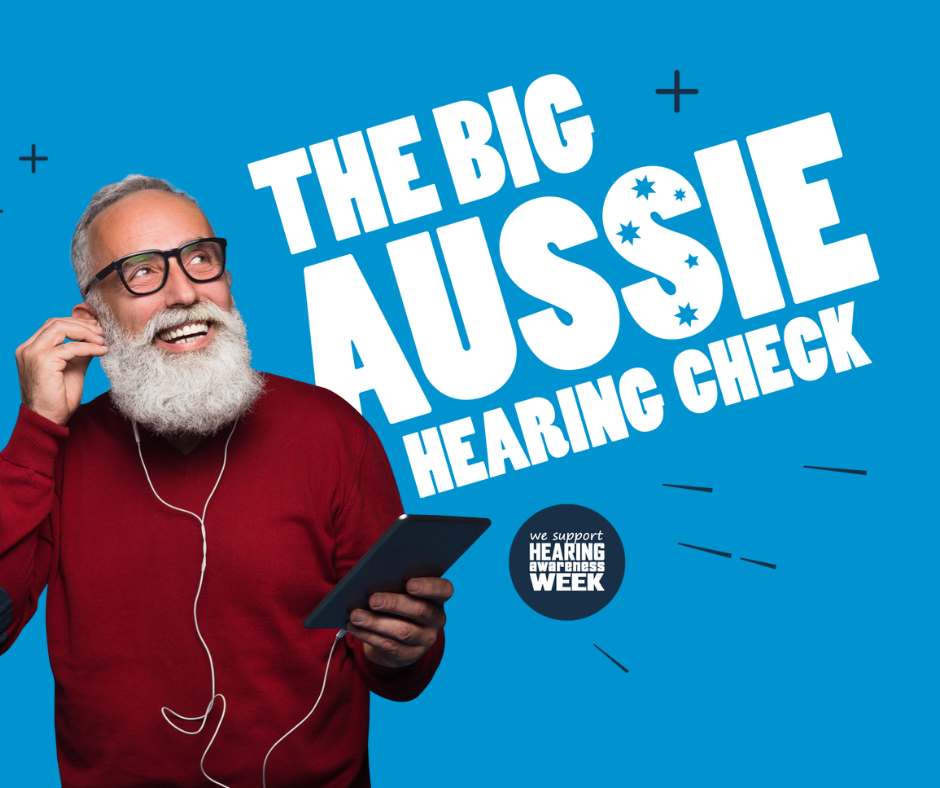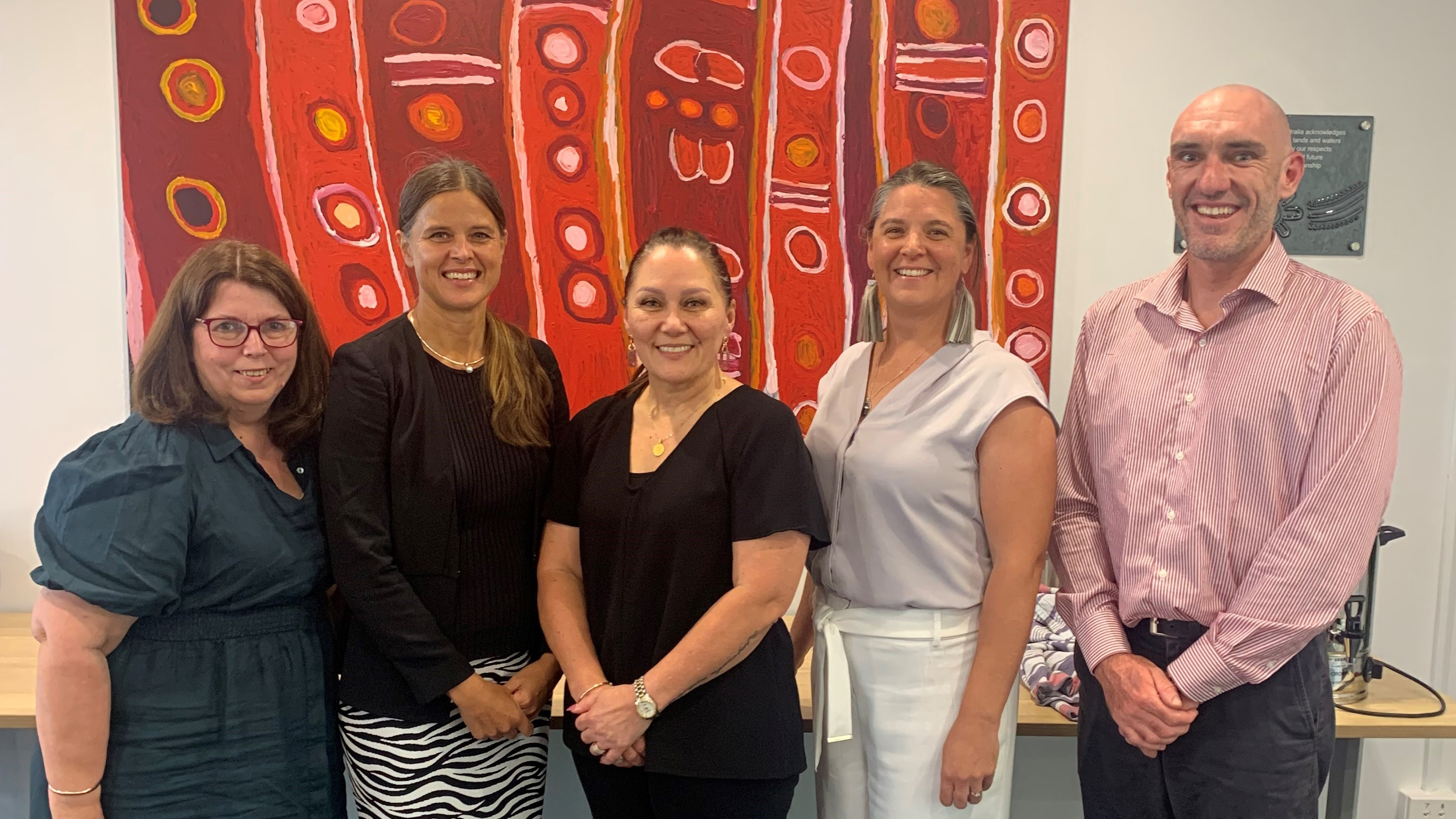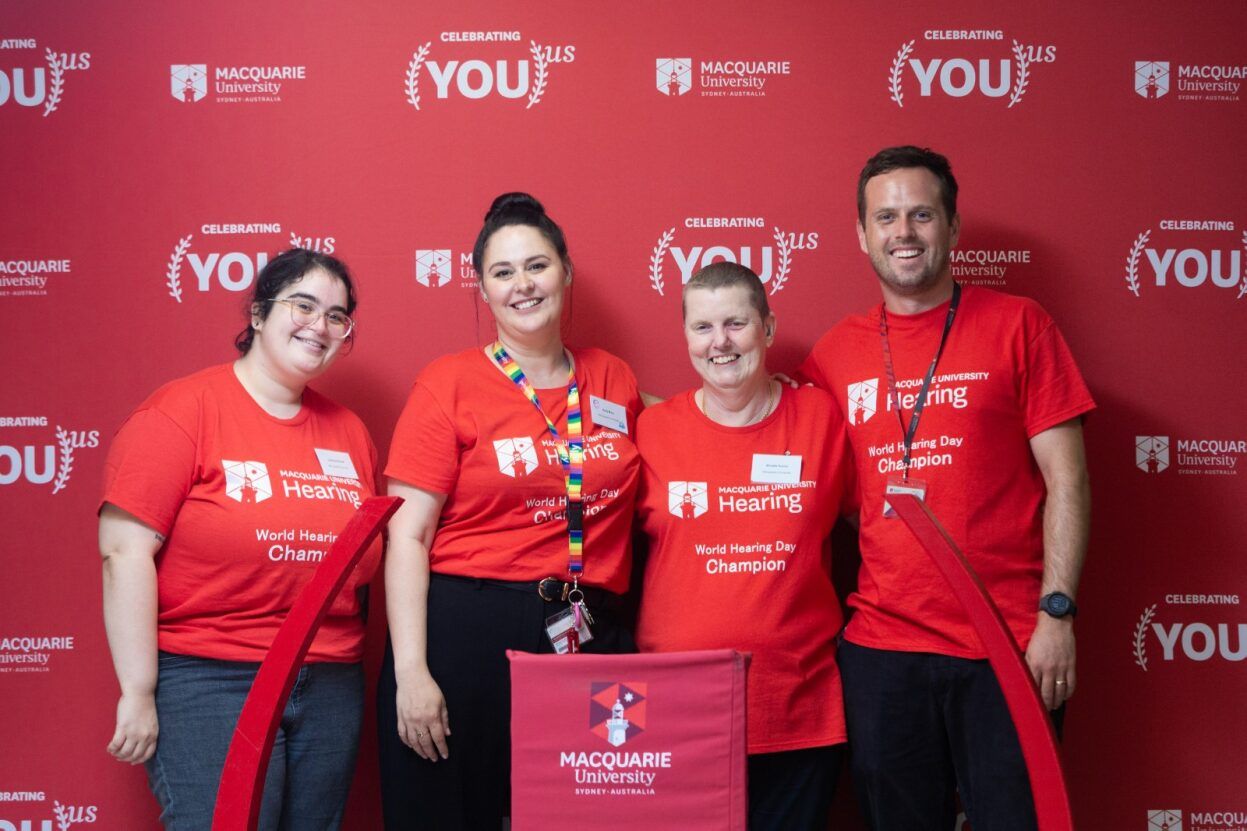New research reveals the truth behind ‘selective hearing’
Do you think your partner has ‘selective hearing’? Sometimes we might feel like our partner is choosing not to listen, but the reality is, in many cases, they just can’t hear you. New research by Australian Hearing reveals that 2.7 million Aussies believe they are regularly ignored because their partner or parent has a hearing loss.1 And this ‘domestic deafness’ is impacting relationships, especially for married couples and Generation X-ers.1
To combat the issue, Australian Hearing is urging Australians to take part in the Big Aussie Hearing Check, which kicks off during Hearing Awareness Week (March 3 – 9) and runs till April 12, 2019.
“The idea of our partners and loved ones having ‘selective hearing’ might not come as a surprise to some,” says Emma Scanlan, Principal Audiologist at Australian Hearing. “But there is a serious side to this. What might be a surprise, is that it could be as a result of undiagnosed hearing problems. And a simple hearing test can reveal that.
“Healthy hearing is a big part of life. It keeps us connected to the people and things we love. Good hearing plays a significant role in helping people stay active, happy and involved in the world around them,” says Emma.
Australian Hearing commissioned YouGov¹ to determine the impact of ‘domestic deafness’ on relationships. The survey included 1,274 people in Australia aged over 18, 654 of whom were aged 50 plus.
Using estimated population figures, the survey results revealed that more than 8 million Aussies often feel ignored by their partner or a parent, with 2.7 million people believing they are being ignored because their partner or parent has a hearing loss. And if you’re married or Generation X, then you might be feeling particularly ignored (47 per cent and 49 per cent respectively).1
The findings show that the most common emotion felt by those who have a family member with a hearing loss was frustration (68 per cent) – and the most affected are women and those aged over 50.1 Those respondents who have a family member with a hearing loss agree there is a range of negative consequences:
- Relationship impact: 46 per cent believe their communication has deteriorated (half of these are women) and two in five respondents (41 per cent) admit it has put a strain on their relationship.1
- Communication issues: Many simply give up trying to talk to their loved one when they can’t be heard (42 per cent).1
- Less enjoyment of social activities: 51 per cent of respondents who have a family member with hearing loss said their loved ones are missing out.1
- Feeling isolated: 31 per cent of men feel isolated when being ignored by a partner or parent, compared with 18 per cent of women.1
With so many people impacted, why aren’t more Aussies getting their hearing checked?
The research shows that more than half of respondents say their partner or parent doesn’t believe they have a hearing problem (59 per cent) or they think they’re coping fine – despite knowing their hearing isn’t what it used to be (39 per cent).1 And for the over 50s, almost three quarters (75 per cent) of those who have a family member who hasn’t had a hearing check, say it’s likely due to them thinking they don’t have a problem.1 This highlights why it’s really important for families to encourage their loved ones to take the first step.
“The aim of our Big Aussie Hearing Check is to make getting hearing help easy,” says Mr Kim Terrell, Managing Director of Australian Hearing. “We want to help people experience the joy of sound in all aspects of their lives. It’s a call to action for all Australians to take control of their hearing health to enhance their wellbeing. We want to help people break free from the stigma of hearing loss. Taking regular hearing checks should just be included as part of our routine health check-ups and overall wellness programme.”
Australians can easily check their hearing online and learn more about their hearing health at bigaussiehearingcheck.com. Developed by the National Acoustic Laboratories, the research division of Australian Hearing, this online test is not only the first of its kind in Australia, but in the world, as it integrates a subjective and objective assessment of hearing ability, attitude and beliefs on a national scale to identify an individual’s hearing needs. Guidance is also provided at the end of the test to help people understand the next steps they can take if the test shows they might need hearing help.
“Not only is our online test a valuable tool for Australians to assess their hearing and receive recommendations for action, but it will provide the basis and insights for additional research that aims to improve the hearing health of all Australians,” says Mr Terrell.
Join the Australian Hearing Big Aussie Hearing Check from 3 March to 12 April 2019 by visiting bigaussiehearingcheck.com or you and your loved ones can drop into one of over 600 Australian Hearing locations around the nation for a free* 15 minute hearing health check.
*Only 15-minute hearing checks are free. Other services may attract charges/fees or be subsidised for those eligible under the Australian Government Hearing Services Program.
References:
- Australian Hearing Study – YouGov survey commissioned by Australian Hearing surveyed 1,274 Australians aged 18 and older 24-28 January 2019. Following the completion of interviewing, the data was weighted by age, gender and region to reflect the latest ABS population estimates. In the final result, those with hearing difficulties were weighted to ensure they are represented in their true proportion within the population.








